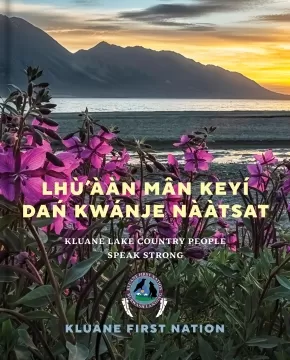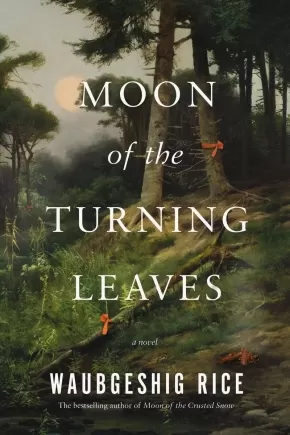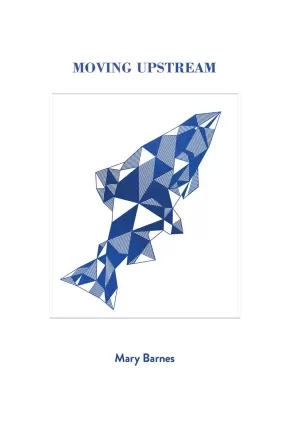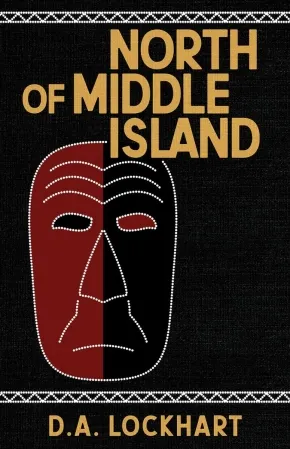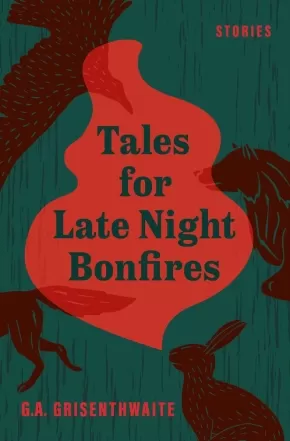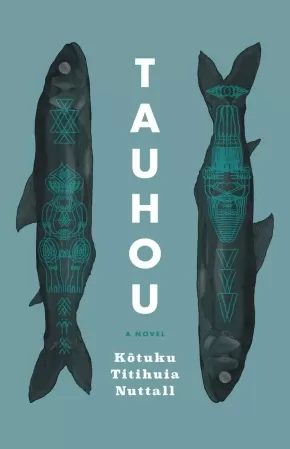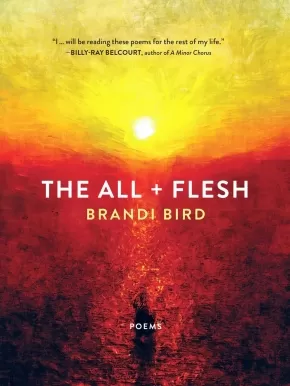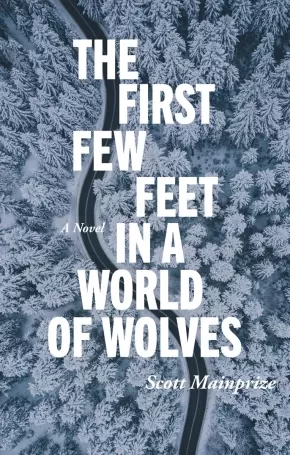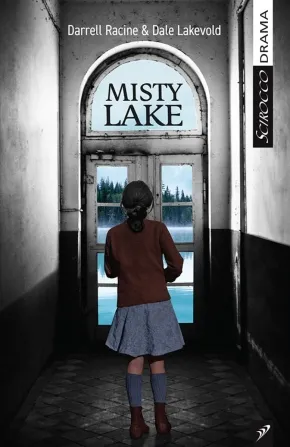
2024 - 2025 Selections
31
-
45
of
50 Results;
Sort By
Go To
of 4
Lhù’ààn Mân Keyí Dań Kwánje Nààtsat: Kluane Lake Country People Speak Strong
$55.00
Format:
Hardcover
Text Content Territories:
Indigenous Canadian; First Nations; Tutchone; Southern Tutchone; Kluane First Nation;
Reading Level: N/A
ISBN / Barcode: 9781773272061
Synopsis:
Synopsis:
In this poignant display of the resilience of language, culture, and community in the face of the profound changes brought by settlers, Kluane First Nation Elders share stories from their lives, knowledge of their traditional territory (A si Keyi, "my grandfather's country"), and insights on the building of their self-governing First Nation.
With generosity, diligence and deep commitment to their community, Elders from Lhu'aan Man Keyi (Kluane First Nation) recorded oral histories about their lives in the southwest Yukon. They shared wisdom, stories and songs passed down from grandparents, aunties and uncles, in Dan k'e (Southern Tutchone, Kluane dialect) and English. This years-long project arose from the Elders' desire for their children and future generations to know the foundations of language, culture, skills and beliefs that will keep them proud, healthy and strong. The Elders speak of life before the Alaska Highway, when their grandparents drew on thousands of years of traditional knowledge to live on the land through seasonal rounds of hunting and gathering; the dark years after the building of the Alaska Highway, when children were taken away to residential schools and hunting grounds were removed to form the Kluane Game Preserve and National Park; and the decades since, when the community worked through the Yukon land claims process to establish today's self-governing First Nation.
Inclusivity is a key community value. The Elders' stories are accompanied by the voices of youth and citizens of all ages, along with a history of the Kluane region. The book is beautifully illustrated with Elders' photographs, historical images and art work, and photos showing breathtaking views of Kluane mountains, lakes, sites, trails, and activities in the community today. With passionate and deeply informed voices, this is a stirring portrait created by a community that has shown resilience through massive changes and remains dedicated to preserving their culture, language and lands for the generations to come.
Awards
- 2024 Indigenous History Book Prize
Educator Information
Some of the wisdom, stories, and songs are in Dan k'e (Southern Tutchone, Kluane dialect).
Additional Information
384 pages | 11.25" x 9.00"| 150 colour and b&w photos | Hardcover
Maggie Lou, Firefox
$14.99
Format:
Paperback
Text Content Territories:
Indigenous Canadian; Métis;
ISBN / Barcode: 9781773068817
Synopsis:
Synopsis:
Maggie Lou's grandpa doesn't call her Firefox for nothing. She's always finding ways to make life more interesting - even if this means getting into big trouble.
"Keep taking up space," Maggie Lou's mother says. You're only making room for the girls behind you."
When her grandfather Moshôm finally agrees to teach her how to box, she decides that the rank odors, endless drills and teasing won't stop her from wearing a tutu to the gym. Joining her father's construction crew uncovers a surprising talent - besides learning how to use a broom - and a great source of scrap wood to build a canine hotel for her dogs. And when she turns thirteen, she figures out an ingenious way to make some smokin' good camouflage to wear on her first deer hunt, where she joins a long family tradition.
Through it all she is surrounded by her big extended gumbo soup of a family, pestered by annoying younger siblings, and gently guided by her strong female relatives - her mother, her kokhom and her ultra-cool cousin Jayda. "Keep taking up space," Maggie's mother says. "You're only making room for the girls behind you."
A heroine for today, Maggie Lou discovers that with hard work and perseverance she can gain valuable new skills, without losing one iota of her irrepressible spirit.
Reviews
"Métis author Bowes weaves cultural elements, including Northern Michif words, into this charming story that skillfully captures sweetly hilarious and loving everyday moments. Black-and-white illustrations enhance the text. An amusing story showcasing Métis humor at its finest." - Kirkus, STARRED REVEIW
Educator & Series Information
Recommended for ages 9 to 12.
This is the first book in the Maggie Lou series.
Key Text Features: author's note, biographical note, glossary, chapters, dialogue, epigraph, illustrations.
Includes some Northern Michif words and a glossary.
Additional Information
220 pages | 5.00" x 7.50" | b&w illustrations | Paperback
Mind Over Matter: Hard-Won Battles on the Road to Hope (HC) (2 in Stock)
$34.00
Format:
Hardcover
Text Content Territories:
Indigenous Canadian; Inuit;
ISBN / Barcode: 9780735242265
Synopsis:
Synopsis:
Following the bestselling success of the inspiring All the Way, pioneering Inuit NHLer Jordin Tootoo begins the process of healing in the wake of the suicide and violence that marks his family, only to discover the source of all that trauma in his father's secret past.
For some hockey players, retirement marks the moment when it’s all over. But Jordin Tootoo is not most hockey players.
Having inspired millions when he first broke into the league, Tootoo continued to influence people throughout his career—not only through his very public triumph over alcoholism, but also his natural charisma. And now, years after hanging up his skates, he is more committed to doing things the right way and speaking about it to others, whether it’s corporate executives or Indigenous youth.
But the news of unmarked graves on the grounds of residential schools brought back to life many of the demons that had haunted his family. In a moment of realization that left him rattled and saddened, Tootoo fit the pieces together. The years that were never spoken of. The heavy drinking. The all too predictable violence. His father was a survivor, marked by what he had survived.
As he travels back to Nunavut to try to speak with his father about what haunts him, he encounters the ghosts of the entire community. Still, as Tootoo says, we are continuously learning and rewriting our story at every step. He has learned from his mistakes and his victories. He has learned from examples of great courage and humility. He has learned from being a father and a husband. And he has learned from his own Inuk traditions, of perseverance and discipline in the face of hardship.
Weaving together life’s biggest themes with observations and experiences, Jordin shares the kind of wisdom he has had to specialize in—the hard-won kind.
Additional Information
208 pages | 6.20" x 9.37" | Hardcover
Moon of the Turning Leaves
$24.95
Format:
Paperback
Text Content Territories:
Indigenous Canadian; First Nations; Anishinaabeg;
Grade Levels: 12; University/College;
ISBN / Barcode: 9780735281585
Synopsis:
Synopsis:
Twelve years after the lights go out . . .
An epic journey to a forgotten homeland
The hotly anticipated sequel to the bestselling novel Moon of the Crusted Snow
It's been over a decade since a mysterious cataclysm caused a permanent blackout that toppled infrastructure and thrust the world into anarchy. Evan Whitesky led his community in remote northern Ontario off the rez and into the bush, where they've been living off the land, rekindling their Anishinaabe traditions in total isolation from the outside world. As new generations are born, and others come of age in the world after everything, Evan’s people are in some ways stronger than ever. But resources in and around their new settlement are beginning to dry up, and the elders warn that they cannot afford to stay indefinitely.
Evan and his fifteen-year-old daughter, Nangohns, are elected to lead a small scouting party on a months-long trip to their traditional home on the north shore of Lake Huron—to seek new beginnings, and discover what kind of life—and what dangers—still exist in the lands to the south.
Moon of the Turning Leaves is Waubgeshig Rice’s exhilarating return to the world first explored in the phenomenal breakout bestseller Moon of the Crusted Snow: a brooding story of survival, resilience, Indigenous identity, and rebirth.
Reviews
"An epic journey into the future, powerfully haunting." —Silvia Moreno-Garcia, bestselling author of Mexican Gothic
“Tense, atmospheric, and ultimately hopeful, Rice masterfully delivers an unsettling, page-turning sequel." —Eden Robinson, author of Son of a Trickster
“It felt like an eternity waiting for Waubgeshig to write the sequel to Moon of the Crusted Snow and it was worth it. As we as a species ponder our own survival, this talented author walks his courageous characters through an odyssey towards hope. At times heart-racing and at times heart wrenching, Moon of the Turning Leaves allows us all to turn the page and find out what’s next in an uncertain future.” —Catherine Hernandez, award-winning author and screenwriter of Scarborough the novel and film
“[Moon of the Turning Leaves] is by turns beautiful and inspiring and bleak and violent. In other words, the perfect dystopian read. Let's hope Waubgeshig Rice doesn't make us wait too long for the next visit to this captivating world.” —Alma Katsu, author of The Fervor and The Hunger
"Novels, when brilliantly written, are passports to another place, another world. Moon of the Turning Leaves takes us to a First Nations community beset by an unbelievable fate that’s managed to survive when much of the world hasn't. Rice has given us a meaningful journey, and people to cheer for. I was in this story." —Drew Hayden Taylor, author of Motorcycles and Sweetgrass and Cold
“Waubgeshig Rice's stories are good medicine. Moon of the Turning Leaves is a restorative balm for my spirit.” —Angeline Boulley, New York Times bestselling author of Firekeeper's Daughter and Warrior Girl Unearthed
"Rice quite brilliantly weaves this sequel to Moon of the Crusted Snow such that the ongoing journey of those wonderfully drawn characters carries on seamlessly. Moon of the Turning Leaves stands on its own while simultaneously carrying the heart of the original story. Suspenseful and gripping, the great anticipation for this next installment is borne out by this artful storytelling." —Michelle Good, award-winning author of Five Little Indians and Truth Telling
Additional Information
312 pages | 5.50" x 8.25" | Paperback
Moving Upstream
$24.95
Format:
Paperback
Text Content Territories:
Indigenous Canadian; First Nations; Anishinaabeg; Ojibway;
Reading Level: N/A
ISBN / Barcode: 9781988168982
Synopsis:
Synopsis:
Drawing on her Ojibwa roots and storytelling, Barnes shares stories that take the heart on the path to the past, nostalgic though it may be, wherein lies discovery, memories, and rhythms that ease the soul. Touching, tender but never overwrought, Barnes' poetry brings wonder to the spirit of nature and provides a sense of connection to the things most often overlooked.
Additional Information
140 pages | 7.50" x 5.00" | Paperback
Nish: North and South
$14.99
Format:
Paperback
Text Content Territories:
Indigenous Canadian; First Nations; Innu (Montagnais-Naskapi);
ISBN / Barcode: 9781443197236
Synopsis:
Synopsis:
The first book in Isabelle Picard’s bestselling coming-of-age series about Innu twins, Léon and Éloïse.
In this acclaimed book, readers meet thirteen-year-old twins Leon and Eloise who live in Matimekush, an Innu community in Northern Quebec.
While Leon spends all his free time playing hockey, and wondering how he can prove he has the talent to make it big in a place with no competition, Eloise works on a school project that opens her mind to the history of her people — their victories and their battles lost.
But when their father gets sick and needs treatment almost 1000 km from home, and someone from their village mysteriously disappears, the twins learn lessons about the fragility of humanity and the dangers of the land they call home.
Educator & Series Information
Recommended for ages 10 to 14.
Translated by Kateri Aubin Dubois, a freelance translator and a prolific beadworker. Her beadwork can be found under her Indigenous name, Nisnipawset. Kateri is from the Wolastoqiyik Wahsipekuk First Nation. She lives with her husband, two children and a fluffy cat in Terrebonne, Quebec.
This is the first book in the Nish series.
Additional Information
304 pages | 5.00" x 7.75" | Paperback
North of Middle Island
$17.95
Format:
Paperback
Text Content Territories:
Indigenous Canadian; First Nations; Anishinaabeg; Ojibway; Chippewas of the Thames ;
Reading Level: n/a
ISBN / Barcode: 9781928120377
Synopsis:
Synopsis:
Journey to the southernmost tip of the territories held by Canada. North of Middle Island opens with a collection of individual poems that capture the spirit of the relatively isolated, sparsely populated community of Pelee Island.
The pieces explore contemporary Indigenous experience in the natural and built environments of the island and surrounding waters. The book concludes with an epic, "rarely true" narrative of modern-day warriors, told in traditional Anglo-Saxon style-a new Lenape myth of how Deerwoman (Ahtuhxkwe) comes to Pelee Island. The events of this epic tale are loosely based on the infamous professional wrestler and actor Rowdy Roddy Piper's time on the island and Wrestlemania XII, Piper's notorious "Backlot Brawl" with fellow wrestler Goldust (Nkuli Punkw). Follow acclaimed Moravian of the Thames First Nation poet D.A. Lockhart on this lyrical, epic journey into the unique culture and landscapes that lie just North of Middle Island.
Additional Information
93 pages | 5.50" x 8.50"
Righting Canada's Wrongs: Inuit Relocations: Colonial Policies and Practices, Inuit Resilience and Resistance
$34.95
Format:
Hardcover
Text Content Territories:
Indigenous Canadian; Inuit;
ISBN / Barcode: 9781459416673
Synopsis:
Synopsis:
In a highly visual and appealing format for young readers, this book explores the many forced relocation of Inuit families and communities in the Canadian Arctic from the 1950s to the 1990s. Governments promoted and forced relocation based on misinformation and racist attitudes. These actions changed Inuit lives forever. This book documents the Inuit experience and the resilience and strength they displayed in the face of these measures. Years afterwards, there have been multiple apologies by the Canadian government for its actions, and some measure of restitution for the harms caused.
Included in the book are accounts of a community forced to move to the High Arctic where they found themselves with little food and almost no shelter, of children suddenly taken away from their families and communities to be transported to hospitals for treatment for tuberculosis, and of the notorious slaughter by RCMP officers of hundreds of sled dogs in Arctic settlements.
Though apologies have been made, Inuit in northern Canada still face conditions of inadequate housing, schools that fail to teach their language, and epidemics of infectious diseases like TB. Yet still, the Inuit have achieved a measure of self-government, control over resource development, while they enrich cultural life through music, film, art and literature.
This book enables readers to understand the colonialism and racism that remain embedded in Canadian society today, and the successful resistance of Inuit to assimilation and loss of cultural identity.
Like other volumes in the Righting Canada’s Wrongs series, this book uses a variety of visuals, first-person accounts, short texts and extracts from documents to appeal to a wide range of young readers.
Educator & Series Information
This book is part of the Righting Canada's Wrongs series.
Recommended for ages 13 to 18.
This book is available in French: Réinstallation d'Inuit: Politiques et pratiques coloniales, résilience et résistance d'un peuple.
Additional Information
144 pages | 9.01" x 11.02" | Hardcover
Rocker from the Rez
$34.10
Format:
Paperback
Text Content Territories:
Indigenous Canadian;
Reading Level: N/A
ISBN / Barcode: 9780228628316
Synopsis:
Synopsis:
There are worse places to live than the rez. Still, family distractions make it almost impossible for Ray Smith and his three bandmates to rehearse every day. So, fresh from high school, the four move to Wakeville, Manitoba to pursue their passion for music.
A half-year later, gigs come fast and thick, with the group touring the northern province. However, too much partying and fighting leads to a bitter split between the band and their volatile bass player, Butch. Bad luck and sabotage from Butch causes gigs to dwindle, and with encouragement from his best friend and guitarist, Ray decides to join a new, well-known band, where his music career takes off. Soon he’s recognized on the street, has spots on TV, and back home he’s hailed a hero.
But success has a dark underbelly. A girl goes missing, and Ray’s loved ones are terrorized by a faceless, vengeful stalker. The question isn’t the culprit’s identity—Ray’s almost positive he knows who’s responsible. But stopping the killer before someone else is murdered…that’s a whole other story.
Additional Information
234 pages | 5.25" x 8.00"
Suliewey: The Sequel to My Indian
$16.95
Format:
Paperback
Text Content Territories:
Indigenous Canadian; First Nations; Beothuk; Mi'kmaq;
ISBN / Barcode: 9781550819885
Synopsis:
Synopsis:
Suliewey: The Sequel to My Indian continues the story of Mi’kmaw guide Sylvester Joe, whose traditional name is Suliewey, as he seeks out the last remaining Beothuk community.
In My Indian, Sylvester was hired by William Cormack in 1822 to guide him across Newfoundland in search of Beothuk encampments. In fact, he followed the advice of his Elders and guided Cormack away from the Beothuk.
In this sequel, having parted ways with Cormack at St. George’s Bay, Sylvester decides to go out on his own, in search of the winter camp of the last of the remaining Beothuk.
Written as fiction, by two Mi’kmaq authors, Suliewey: The Sequel to My Indian supports Mi’kmaq oral history of friendly relationships with the Beothuk.
The novel reclaims the settler narrative that the Beothuk and the Mi’kmaq of Newfoundland were enemies and represents an existing kinship between the Mi’kmaq and the Beothuk.
Rich in oral history, the descriptions of traditional ceremonies and sacred medicines, the use of Mi’kmaw language, and the teachings of two-spirit place readers on the land and embed them in the strong relationships described throughout the book.
Educator & Series Information
Recommended for ages 12 to 14.
This is the second book in the My Indian series.
Additional Information
232 pages | 5.25" x 8.00" | b&w illustrations | Paperback
232 pages | 5.25" x 8.00" | b&w illustrations | Paperback
Tales for Late Night Bonfires
$22.95
Format:
Paperback
Text Content Territories:
Indigenous Canadian; First Nations; Salish; Interior Salish; Nlaka'pamux (Thompson);
Reading Level: N/A
ISBN / Barcode: 9781990601378
Synopsis:
Synopsis:
Curious, uncanny tales blending Indigenous oral storytelling and meticulous style, from an electric voice in Canadian fiction.
These are stories that are a little bit larger than life, or maybe they really happened. Tales that could be told 'round the campfire, each one-upping the next. Tales about a car that drives herself, ever loyal to her owner. Tales about an impossible moose hunt. Tales about the Real Santa(TM) mashed up with the book of Genesis, alongside SPAM stew and bedroom sets from IKEA.
G.A. Grisenthwaite's writing is electric and inimitable, blending meticulous literary style with oral storytelling and coming away with a voice that is entirely his own. Tales for Late Night Bonfires is truly one of a kind, and not to be missed.
Reviews
"Tales for Late Night Bonfires is funny, dark, and rich all at once; each story is immense and alive. Grisenthwaite shows us what fiction can be when story leads the way." - QUILL & QUIRE starred review
"With his first book, Home Waltz, G.A. Grisenthwaite had arrived. With Tales for Late Night Bonfires, he has fully moved in. His writing is so vivid and fresh that the reader inhabits his characters, in their homes, on the land, in their talking cars. Gord has a great gift for dialogue and he writes with flinty humour and such love. I felt more completely human when I finished this book." - SHELAGH ROGERS founding host and co-creator, The Next Chapter, CBC Radio
"Grisenthwaite is a master storyteller, with a voice capable of roasting us and all the other ‘two-leggeds’ while keeping us at the bonfire, hungry for more. The lives of these unforgettable characters are at once comic and heart-crushing, precarious and buoyed by the undying embrace of interlaced dimensions, imbricate worlds." - SUSAN HOLBROOK author of Throaty Wipes and Ink Earl
"Gordon has a voice that is authentic campfire. I felt like I was holding a mug of tea in one hand, and enjoying a fish fry with the other - while waiting for his words to paint a vibrant canvas of characters. Sitting around the campfire, and ingesting memory with stories that need to be told, and retold. These stories visit places in the heart, where we each share, words that need to be said, words that beg to be read." - CAROL ROSE GOLDENEAGLE author of Bearskin Diary and Essential Ingredients
Additional Information
232 pages | 5.25" x 8.00" | Paperback
Tauhou: A Novel
$24.99
Text Content Territories:
Indigenous Canadian; First Nations; Salish; Coast Salish; Saanich (WSANEC); Indigenous New Zealander; Maori; Ngati Tuwharetoa; Te Ati Awa;
Reading Level: N/A
ISBN / Barcode: 9781487011697
Synopsis:
Synopsis:
Dear grandmother, I am writing this song, over and over again, for you. I am a stranger in this place, he tauhou ahau, reintroducing myself to your land.
Tauhou is an inventive exploration of Indigenous families, womanhood, and alternate post-colonial realities by Kotuku Titihuia Nuttall, a writer of Maori and Coast Salish descent. This innovative hybrid novel envisions a shared past between two Indigenous cultures, set on reimagined versions of Vancouver Island and Aotearoa New Zealand that sit side by side in the ocean.
Each chapter is a fable, an autobiographical memory, a poem. A monster guards cultural objects in a museum, a woman uncovers her own grave, another woman remembers her estranged father. On rainforest beaches and grassy dunes, sisters and cousins contend with the ghosts of the past - all the way back to when the first foreign ships arrived on their shores.
In a testament to the resilience of Indigenous women, the two sides of this family, Coast Salish and Maori, must work together in understanding and forgiveness to heal that which has been forced upon them by colonialism. Tauhou is an ardent search for answers, for ways to live with truth. It is a longing for home, to return to the land and sea.
Reviews
"Tauhou is a search for answers, of finding ways to live with the truth. Some of the stories are like fables, others like poetry, and all are a sheer joy to read. A longing for home resonates, a gift for those of us searching for our island also."— Kete Books
"This one's for the lovers of language, lean prose-poetry you can dip in and out of and think about for hours. Best read beside a large body of water."— Woman Magazine
"Brilliantly written in the best of Maori and Coast Salish practices of story, Tauhou is teeming with possibility, love, and dreaming otherwise." — Leanne Betasamosake Simpson, author of Noopiming: The Cure for White Ladies
"Kotuku Titihuia Nuttall takes threads made from all the colours of the Indigenous experience and crosses them over oceans, cultures, and time." — Tayi Tibble, author of Poukahangatus and Rangikura
"Kotuku Titihuia Nuttall's Tauhou is a brilliant example of what language can do when forged with intentional hands and a fantastic mind. Nuttall's work binds words in a way that doesn't hold too tightly but steadfastly contains the many Ancestors present in Nuttall's life and work, weaving together a tapestry of nuance and witnessing. Masterful dialogue and rich scenes move emotions like the currents around Aotearoa and the Salish Seas, a beautiful display of lyricism that loudly proclaims that Kotuku Titihuia Nuttall belongs in the crescendo of rising voices in CanLit. Tauhou is not a collection to miss!" — jaye simpson, author of it was never going to be okay
"The stories in this collection move like the waves of the ocean that divide Vancouver Island and Aotearoa. Once you emerge from Tauhou's narrative depths, you'll miss its imagination, its rhythms, its heart." — Alicia Elliott, author of A Mind Spread Out on the Ground
Educator Information
Includes a SENĆOŦEN glossary, a Te Reo Māori glossary, an Author's Notes and Acknowledgements.
Curriculum Connections: Indigenous Studies
Additional Information
224 pages | 5.00" x 7.75" | Hardcover
The All + Flesh: Poems
$19.99
Format:
Paperback
Text Content Territories:
Indigenous Canadian; First Nations; Anishinaabeg; Ojibway; Saulteaux; Cree (Nehiyawak); Métis;
Reading Level: N/A
ISBN / Barcode: 9781487011826
Synopsis:
Synopsis:
Brandi Bird's frank, transcendent poetry explores the concepts of health, language, place, and memory in this long-anticipated debut collection.
Brandi Bird's long-anticipated debut poetry collection, The All + Flesh, explores the concepts of health, language, place, and memory that connect its author to their chosen kin, blood relatives, and ancestral lands. By examining kinship in broader contexts, these frank, transcendent poems expose binaries that exist inside those relationships, then inspect and tease them apart in the hope of moving toward decolonial future(s). Bird's work is highly concerned with how outer and inner landscapes move and change within the confines of the English language, particularly the "I" of the self, a tradition of movement that has been lost for many who don't speak their Indigenous languages or live on their homelands. By exploring the landscapes the poet does inhabit, both internally and externally, Bird's poems seek to delve into and reflect their cultural lineages-specifically Saulteaux, Cree, and Métis-and how these transformative identities shape the person they are today.
I am made of centuries & carbohydrates
the development of my molars
the hunger the teeth grew
has been with me since childhood
I can't escape the mouths of others
Awards
- 2024 Poetry in English, Indigenous Voices Awards
Reviews
"Since hearing Brandi Bird at a reading in a park in summertime recite the lines, "I know / then that there is hope / until I die & then / there is other / people's hope," I have thought about them many times, they have merged with my own consciousness. That's the power of Bird's poems-they resonate at such a visceral and cerebral level that they become a part of you. The All + Flesh marks the arrival of an endlessly moving and astounding voice in Indigenous poetry. I, for one, will be reading these poems for the rest of my life." — Billy-Ray Belcourt, author of A MINOR CHORUS
"In The All + Flesh, Brandi Bird maps the psychic space between 'NDN compartmentalization' and split prairies, from bus depots to 'endocrine storms,' from LiveJournal to a living history of relocation under land theft. 'My body is not an empire but first contact happened at / birth' and 'I eat / until my mouth needles / the dark.' With exacting lucidity, Bird's lyrics chart the body as a reservoir for colonial malice, a site of resistance, and a conduit for a voice that is visceral, immediate, and uncompromising. An absolute triumph of a debut."— Liz Howard, author of Letters in a Bruised Cosmos
"A stunning collection with carefully crafted, searing poems that refuse artifice, indirectness, and voyeurism. Brandi Bird writes the experience of illness and Indigeneity into a world that accepts illness only if it perpetuates colonial beauty and body standards, then interrogates the racist systems that disallow care and compassion for Indigenous people. These poems are tender and surprising; they are holes travelling through time and space. They are able to shapeshift God into pills, prayers, seeds, and stars. The All + Flesh has taken root in my mind and I'm happy to let it grow there." — Jessica Johns, author of Bad Cree
Additional Information
96 pages | 6.00" x 8.00" | Paperback
The First Few Feet in a World of Wolves
$24.95
Format:
Paperback
Text Content Territories:
Indigenous Canadian; First Nations; Anishinaabeg; Algonquin; Inuit;
Reading Level: N/A
ISBN / Barcode: 9781998779093
Synopsis:
Synopsis:
The First Few Feet in a World of Wolves chronicles the fictionalization of the year the author spent teaching in Aupaluk (a remote Inuit community on the Ungava Coast of Nunavik). The story outlines, and explores, the history of oppression experienced by the more than five hundred Indigenous nations across northern Turtle Island at the hands of the Canadian government since the Royal Proclamation.
Told through the voice of Nomad, who finds himself very much at odds with the land itself. Nomad slowly learns how to reconnect with his fractured history as he embraces and is embraced by the Elders and his own students. Told is crisp, spare prose, this debut novel brings forward a powerful new Indigenous voice to the literary landscape.
Reviews
"Speaking in a voice that is both powerful and playful, Scott Mainprize weaves a thoughtful investigation into the Indigenous Peoples' oppression through the eyes of his fictional character, Nomad. And we discover as Nomad discovers that the art of storytelling is a way towards healing and reconciliation." - Mary Barnes, author of Moving Upstream
Additional Information
350 pages | 8.00" x 5.00"| Paperback
The Misty Lake
$17.95
Format:
Paperback
Text Content Territories:
Indigenous Canadian; First Nations; Dene; Métis;
Reading Level: N/A
ISBN / Barcode: 9781990738302
Synopsis:
Synopsis:
Misty Lake tells the story of a young Metis journalist from Winnipeg who travels to a Dene reserve in Northern Manitoba to conduct an interview with a former residential school student. What Mary imparts in her interview will change Patty's life profoundly, allowing the journalist to make the connections to her own troubled life in the city. Patty knows that her Metis grandmother went to residential school when she was a girl. But Patty hasn't understood until now that she's inherited the traumatic legacy of residential school that was passed down to her mother from her grandmother. With this new understanding, Patty embarks on a healing journey. It will take her to the Dene fishing camp at Misty Lake, a place of healing, where, with Mary, she will learn that healing begins when you can talk about your life.
Additional Information
80 pages | 5.50" x 8.50" | Paperback
Sort By
Go To
of 4

